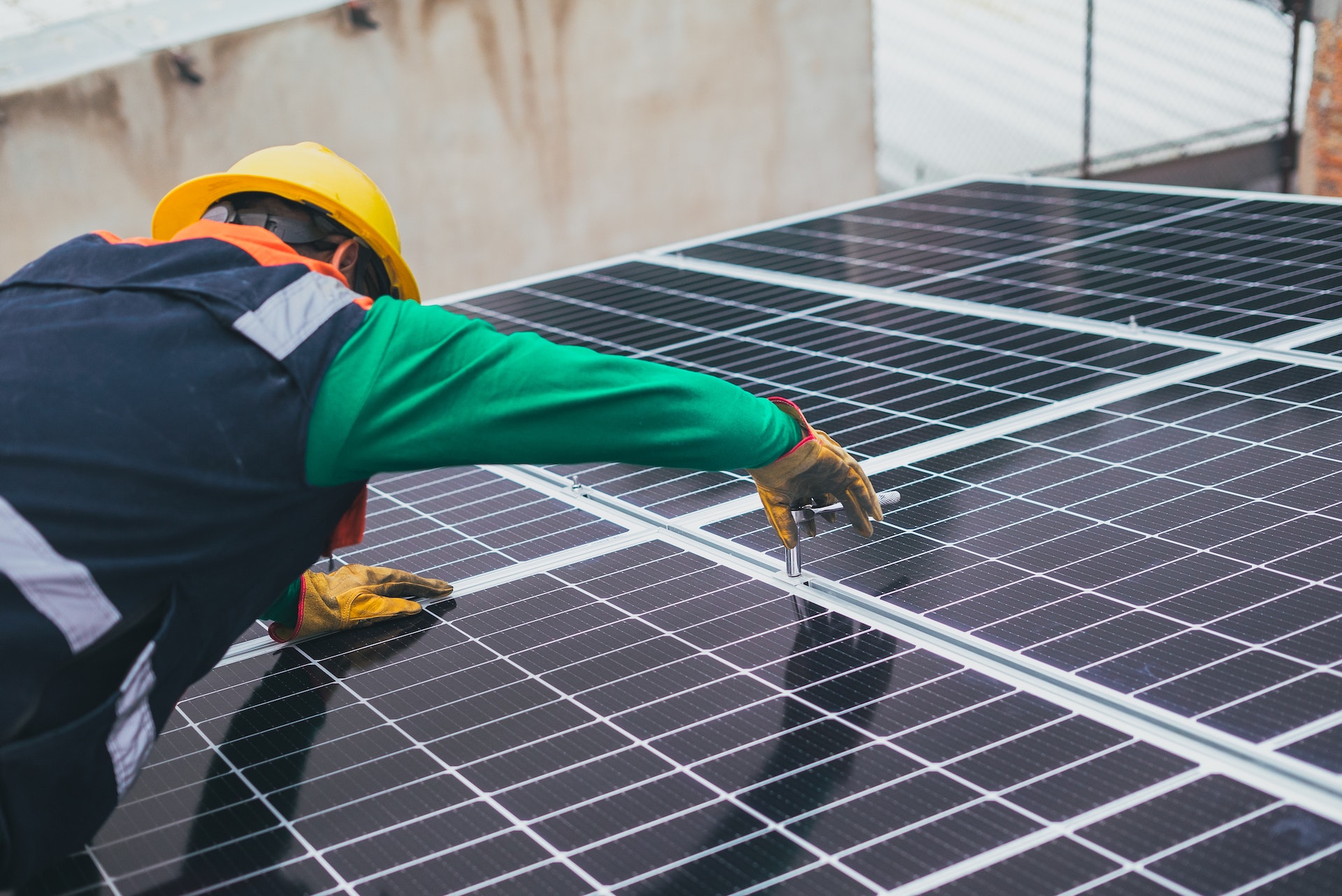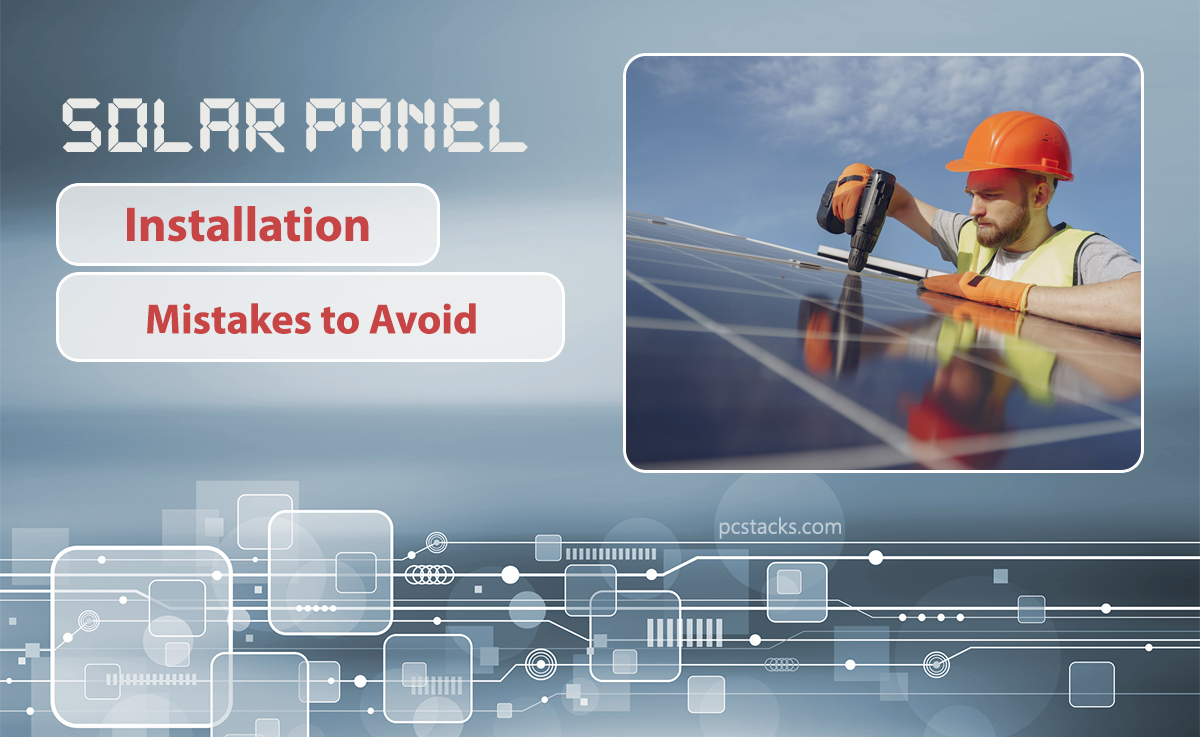Are you looking to go solar but worried about making mistakes? 50% of all newly installed electricity-generating capacity in the United States came from solar.
As a solar panel installation service, we focus on the panel installation process rather than the basics of human nature. No matter how experienced you are, you can make solar installation mistakes. Some common blunders occur during every solar panel installation.
Fortunately, you can learn the most slip-ups to avoid creating a successful installation.
Are you ready to get started? Keep reading to get the full lowdown on solar panel installation mistakes to avoid.
-
Table of Contents
Overloading
Overloading is when your solar panel installation has an excessive amount of energy. It can cause serious problems. These include power outages, reduced energy efficiency, and even starting fires.
To avoid these pitfalls, install a solar panel system within the manufacturer’s recommended wattage. Use the correct size of cables for the panel installation. These need to be adequately insulated to avoid overloading and its associated risks.
Consider the energy your home needs based on its size and decide how much solar panel capacity is necessary to meet that need. It only connects a few solar panels to one part. Also, ensure that the wiring is secure and insulated.
Lastly, check your system’s power consumption and look out for any symptoms of overloading. Watch for burned or discolored wires, excessive noise, or constant trips.

-
Wiring Errors
Poorly executed wiring can affect the ability of the system to act correctly. Plan the system design before solar installation to reduce the risk of wiring problems.
This includes determining the power requirements and selecting the right components. Also, match the wire sizes and types to the system components.
Ensure that all electrical connections are secure and not subject to vibration or heat. Be careful when mounting wires and components. Please ensure they are free of sharp edges and corners that may damage or puncture insulation or disrupt electrical flow.
Double-check all electrical connections. Follow all local codes and regulations for wiring.
-
Wrongly Angled Panels
When this occurs, the panel may not maximize the available solar power potential. It will be less efficient than it is, which will cause less energy production. This will leave homeowners with a less-than-optimal return on their investment.
It is crucial to calculate the angle of the panels based on the geographic location of the home and the direction it is facing to avoid this mistake. Also, angle the panels wherever possible to track the sun or install a tracking mount.
Mount the panels on mounting frames with adjustable angles. It enables easy access for adjustments when the sun’s path shifts throughout the year.
Prevent the panels from being shaded by trees or other nearby objects. It can decrease production significantly. Finally, the installer should take extra steps to ensure the discussions stay securely connected to the mounting material.
-
Poor Ground Clearance
Poor ground clearance can create an attractive pathway for lightning strikes. This increases the likelihood of an electrical current passing through the solar roof area. It can cause equipment failure and other issues.
Installers should always use mounting clamps to avoid this common mistake. It should be at least 8 inches to cut potential lightning strikes. Install the clamps as close as possible to the proper ground level; they shouldn’t be exposed to water.
Ensure the clamps stay clear of precipitation, debris, and other materials that can interfere. Double-check that all panel connector cables are securely within their proper channels. Also, fasten all cabling to the clamps.
-
Choosing the Wrong Inverter
With so many choices in the solar industry, it is easy to get confused when choosing a solar panel inverter. A solar panel inverter converts direct current (DC) energy from the solar panels into alternating current (AC) energy to be used by your home.
Choosing a suitable inverter can be a costly mistake. It can decimate the solar panel system’s production and efficiency. Also, it can produce or create compatibility issues or even be dangerous for your system.
To avoid this issue, individuals should work with qualified solar panel installers. They have the experience and knowledge to size an inverter for their system.
Double-check that the inverter you select is compatible with the type and size of your solar panel. It is best to use the most current inverter technology. This will ensure your system can run efficiently.
-
Overlooking Maintenance Requirements
Overlooking maintenance requirements can have long-term consequences for your solar energy system. With regular maintenance, solar panels may do so to their fullest potential. It loses effectiveness over time and costs you money.
To avoid this, stay mindful of the maintenance requirements of your solar panels. Inspect and clean the panels regularly to maximize power output. Neglecting your solar panels can lead to dust or dirt buildup, affecting efficiency.
Regular maintenance helps to detect any panel faults or risks. This includes wear and tear from the environment exposed to solar panels.
Also, check for proper alignment with the sun and discuss any issues with the system as soon as they arise. Be sure to schedule regular cleaning for your panels to avoid any potential problems in the future.

-
Failing to Consider Local Rules and Building Codes
Building codes vary among jurisdictions, and bypassing local regulations can lead to warnings, fines, and other compliance issues. Installing solar panels without regard to local rules and codes can be unsafe. This can invalidate home insurance policies.
Customers should be sure to research local rules and ordinances. This will ensure your installation complies with applicable regulations. Also, it will make sure that your home remains safe.
Contacting a qualified roofer to ensure that your roof will safely support any extra weight is another precaution you consider when installing solar panels. Consider consulting a permitting specialist to complete any necessary paperwork.
Avoid These Solar Panel Installation Mistakes Today
Taking the proper precautions in solar panel installation can maximize efficiency and prevent unnecessary problems. Avoid overloading, wiring errors, wrongly angled panels, poor ground clearance, and wrong inverter. To avoid solar mistakes in installation, research the basics and seek professional help, be aware of all safety protocols and codes, and invest in regular maintenance.
With proper care and attention, ensure you get the most out of your solar panel goals – so get started today!
Be sure to check out our other blog posts for added guidance!




